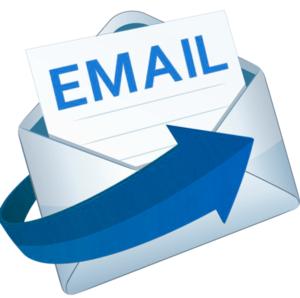How to Write a Professional Email
We at Tutor Delphia are all about helping our clients prepare for the future, whether it is preparing for a class, exam, or job interview. When it comes to jobs, everybody knows how important it is to clinch that first interview. But before you shine your shoes and iron out a nice shirt, remember that the employer or boss might already have a first impression of you. Yes, they’ve maybe seen your resume or cv, but your communication style and politeness shine through in email. This is why it is super important that you are aware of writing etiquette to avoid any accidental pitfalls.
Think of It Like a Letter
It is tempting to think of email as the same as a text message. Emails are a fast way to communicate, efficient, and if you have your email connected to your phone, extremely convenient. However, this does not mean that you should draft emails to employers or professors the same way you would text your bestie. Though text speech normally is abbrived af, the rules of formal letter writing still apply when drafting emails. Every email needs a greeting, a body, a closing, and a signature. Let’s go over what these pieces are and what they accomplish for the overall email:
Greeting:
It is the first thing that the person reading your email will see, so in proper form. Always begin with a “Dear So and So,” (with a comma) or a “To Whom It May Concern:” (with a colon). As you build correspondence with the person, you might be able to pull off a “Hi First Name”. However, you should probably save this until after the first few emails to avoid seeming rude.
Sometimes you may not be sure how to address the person. It may be unclear what title they should receive (Doctor vs Professor, Mr/Ms). You can always do a quick search on the person to gather more information, and it also doesn’t hurt to just address them as their full name if you don’t know! See how they address themselves in their closing when they reply to you and make your adjustments for the follow up. Finally, make sure you double check that you’ve spelt their name right before sending!
Body:
You can write as short as you want in a text, but you should not write the same way in an email. It might seem inefficient or counter-intuitive to bury what you want to say in paragraphs, but short, blunt responses can come across as rude. Especially in the first message, take time to introduce yourself and create a friendly, yet professional tone. Remember to use clear sentences and proper grammar. You shouldn’t send an essay, but your email should read like you put effort and attention in your communication. This will help your polite email stand out for your potential employer or colleague.
Closing
Like your professional email, all good things must come to an end. However, there are a few things to remember to make sure you go out with a bang. Before the closing, it is always good to write a “thank you” sentence. “Thank you for this opportunity” works, and so does “I hope to hear from you soon”. Showing that you are gracious and thoughtful at the end hammers home that you are a serious candidate. It also can sweeten the message at the end, especially if you are asking for a favor or request.
Moving down to the closing, it is best to keep it simple. Classics like “Sincerely yours” or “Best wishes” work because they are polite and efficient. “Thank you very much” can be used, but it is unnecessary if you have already thanked them in your conclusion. The closing and the greeting are often the first two pieces to be omitted in emails, but together they add a nice touch to the overall message. Just make sure you don’t sign with Xs and Os (unless you really mean it).
Signature
Writing your name should be simple enough, but since the invention of e-signatures, they can get a little complicated. Even if the email is beautifully written, a poor signature can leave a bad taste in the mouth. Nevertheless, you can use this feature to your advantage if you are smart about it! Listing your University and Department can be a nice professional touch if you are applying for academic positions. You could also leave contact information in the closing if you feel comfortable giving it to the recipient. I would not recommend this signature being longer than 4 lines or have any irrelevant or unprofessional information (i.e. links to social media, passion projects). I would also advice removing the “sent from mobile device” signature for mobile emailing.
With all those pieces together, you should be ready to send! Just make sure to proof read for spelling and grammar before clicking send! Remember, with Gmail, you can unsend an email up to 30 seconds after sending. Use this safety net to fix mistakes and make your emails perfect.
The Follow Up Email
You’ve done it. Professor Jerry Smith was so impressed by your email that they have written you back to offer you an interview. After a moment of celebration and jubilee, it dawns on you that you must now write a response. Seeing how well received your first letter was, you respond with a similar format to the first email, proving that your professionalism was not a fluke and you are a dependable and respectable applicant.
However, a few days later, you receive a very short and blunt email from Professor Smith:
Something came up. Can you reschedule for Friday at 2?
JS
At first, you are shocked and appalled. No greeting, no closing, and barely even a signature in this email! You start to doubt yourself and wonder if you have been trying too hard in your emails. Should you write in a similar way in your response?
The answer is unclear, but it is always better to err on the side of being too formal, even if you have emailed this person multiple times. You still should include all of the pieces of a formal letter, even if they are short and quickly written. Prof Smith is the superior in this situation, and is probably busy juggling their 4 research grants at once. You chalk it up to the day that you too are an influential and powerful employer, and maintain formality with something like this:
Dear Professor Smith,
Not a problem! See you on Friday at 2:00!
Sincerely,
Perfect Applicant
It doesn’t have to be long or take a long time to write, but by keeping to the format, your politeness will be appreciated. Happy emailing, everyone! Go out and get those interviews!

